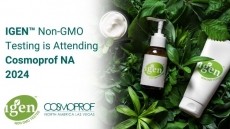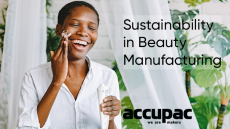Industry expert reacts to Puig acquisition of Dr. Barbara Sturm

Puig recently announced its acquisition of a majority stake in premium skin care brand Dr. Barbara Sturm. As confirmed by Puig, the brand’s founder, and namesake will remain active in its product development as Chief Product Development Officer and Brand Ambassador.
In announcing the acquisition, Puig maintained that it reinforces its “competitive position in the premium skincare segment by welcoming a globally recognized luxury cult brand developed through its digital channels and worldwide spa and boutiques network, offering high-performance treatments with deep expertise in skin care.”
For insight into the industry reaction to the acquisition, including the acquisition’s significance to the luxury skin care product market, its potential industry impact on cosmetic and personal care product manufacturers and suppliers, and the insights that can be gained on the consumer mindset, CosmeticsDesign spoke to industry expert Chris Bustamante, DNP, Aesthetic Nurse Practitioner and founder of Lushful Aesthetics.
Bustamante has years of experience in the beauty industry as a Makeup Artist for retailers like Nordstrom, Macy's, and MAC, and has also worked in digital marketing for an e-commerce beauty brand.
Acquisition significance to luxury skin care market
About Puig’s acquisition of Dr. Barbara Sturm and its potential impact on other luxury skin care brands, Bustamante shared that “this may be the beginning of a pivotal change that will demonstrate the awareness that luxury skincare brands know their brands are no longer perceived as desirable or necessary.” Further, he added, “I believe this public change is those brands now displaying that there will be some modifications to match the changing needs and wants of consumers.”
Bustamante said this pivot stems partly from increasing transparency in the product ingredient sourcing and formulation process. “There’s a large markup in luxury skincare because people are being sold a brand, [and] it’s not necessarily because all those ingredients are expensive to purchase or produce.” Now more than ever, consumers turn to “social media influencers, many of which are dermatologists, to see if those expensive ingredients are even worth the cost."
Therefore, “the solution is essentially a pivot,” evidenced by Puig’s acquisition of Dr. Barbara Sturm. As “more people spend their hard-earned money on destigmatized office treatments for impactful results,” he continued, “luxury skincare lines can still be successful, but their approach will need to minimize expensive packaging, still showcase a hero ingredient that is worth the cost, and strategically target a younger audience that won’t outgrow the product.”
Impact on manufacturers and the consumer mindset
Puig’s acquisition of Dr. Barbara Sturm may potentially have a farther-reaching impact on manufacturers and suppliers to the cosmetics and personal care product industries and beauty consumers. Bustamante predicted that the luxury skin care market may start seeing brands spending less on the packaging, for example. “This doesn’t have to be seen as a bad thing,” he said, but “the main focus in skin care now has been shifted to the efficacy of each product's ingredients.”
For example, he illustrated, “with social media being so prevalent, a product can be reviewed by Dermatologists, Aesthetic Medicine Providers and Beauty Gurus within just days of its launch, giving consumers the inside scoop on whether the product is worth it.” As a result, “manufacturers will have to shift their approach to packaging and brands may need to work with different suppliers,” and “there will still be movement in this space,” he said.
He added that the sale also gives insight into the shifting consumer mindset, which is “essentially that consumers are far more educated about skin care than they once were.” This makes “marketing far more challenging if there’s a lack of transparency,” he explained, as consumers “will uncover marketing that may be deceptive or inauthentic.”
Moving forward, Bustamante predicted that luxury skin care brands would be more likely to “lead with authenticity, [then] evidence-based research, and then a brand story and image that is still relevant and appealing to consumers” to better connect with beauty product shoppers.
![Shiseido’s decision to add Dr. Dennis Gross to its portfolio could have been influenced by medi beauty trend. [Dr. Dennis Gross]](/var/wrbm_gb_food_pharma/storage/images/_aliases/wrbm_medium/publications/cosmetics/cosmeticsdesign-asia.com/headlines/business-financial/shiseido-acquisition-of-dr.-dennis-gross-enables-it-tap-into-medicalisation-of-beauty/17084543-1-eng-GB/Shiseido-acquisition-of-Dr.-Dennis-Gross-enables-it-tap-into-medicalisation-of-beauty.jpg)















